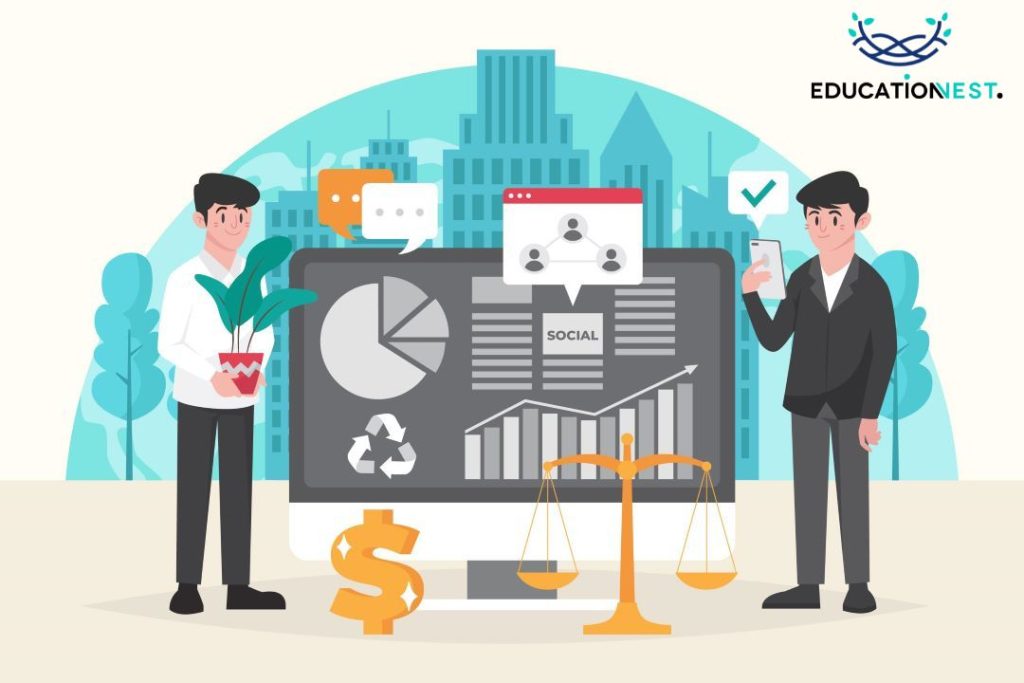Economics is a vast and complex field that impacts our everyday lives, and when it meets the world of business, it becomes managerial economics. If you’re new to economics and wondering how it relates to the business world, this blog post is your gateway to understanding managerial economics. We’ll explore what it is, how it differs from traditional economics, its relevance to businesses, and why taking a business economics course can be a game-changer for aspiring entrepreneurs and professionals.
Managerial Economics: The Business Perspective
Managerial economics is the branch of economics that applies economic theories, concepts, and tools to business decision-making. It’s all about applying economic principles to solve real-world problems in the business environment. Here’s what sets it apart from traditional economics:
- Focus on Business: Managerial economics concentrates on the practical concerns of businesses, helping them make informed decisions regarding production, pricing, marketing, and resource allocation.
- Microeconomic Emphasis: It deals with microeconomics, which studies the behavior of individual firms, consumers, and markets. This narrow focus makes it highly relevant to businesses.
- Decision-Oriented: Managerial economics is inherently decision-oriented. It provides the analytical tools needed to make rational choices that maximize business goals like profit or market share.
Relevance of Managerial Economics in Business

Now, you might wonder why managerial economics is crucial for businesses. Here are some reasons:
- Resource Allocation: Businesses must allocate their resources efficiently. Managerial economics helps in determining the optimal allocation of resources, such as labor, capital, and raw materials.
- Pricing Strategies: Setting the right prices for products or services is essential for profitability. Managerial economics aids in pricing decisions by considering factors like cost, demand, and competition.
- Market Analysis: Understanding market conditions, demand trends, and consumer behavior is vital. Managerial economics provides the tools to analyze and respond to market changes.
- Risk Assessment: Businesses operate in an uncertain environment. Managerial economics assists in evaluating risks and making risk management decisions.
- Profit Maximization: Ultimately, businesses aim to maximize profits while minimizing costs. Managerial economics offers insights into how to achieve this goal.
Economics for Beginners: A Primer
For those new to economics, it’s essential to grasp some fundamental concepts:
- Supply and Demand: The cornerstone of economics, it refers to the relationship between the availability of a product (supply) and the desire for it (demand).
- Opportunity Cost: This represents the value of the next best alternative foregone when a decision is made.
- Marginal Analysis: It examines the additional cost or benefit associated with small changes in a decision.
- Market Structures: Different types of markets, such as perfect competition, monopoly, and oligopoly, impact pricing and competitiveness.
- Elasticity: Measures how sensitive the quantity demanded or supplied of a good is to changes in price or income.
Also Read:
7Ps of Marketing Mix: How To Craft A Successful Strategy
Business Economics Course: Your Path to Expertise
Enrolling in a business economics course is a wise investment for budding entrepreneurs and professionals seeking to enhance their decision-making skills. Here’s what such a course typically covers:
- Fundamental Principles: Courses introduce students to the basic principles of economics, including supply and demand, cost analysis, and market structures.
- Application to Business: They delve into the practical application of economics in business scenarios, equipping students with tools for real-world problem-solving.
- Case Studies: Many courses incorporate case studies that illustrate how businesses have successfully applied economic principles to achieve their goals.
- Decision-Making Frameworks: Students learn decision-making frameworks that consider both economic and non-economic factors.
- Resource Allocation: The courses teach how to optimize resource allocation, manage costs, and maximize profits.
- Market Analysis: They provide insights into market analysis, including consumer behavior, demand forecasting, and competitive analysis.
Conclusion
Managerial economics is a dynamic field that bridges the gap between economics and business, offering valuable insights and tools for making sound decisions. By understanding the fundamentals of economics and how they apply to business scenarios, individuals can unlock new opportunities and drive success in the competitive world of commerce. Whether you’re an aspiring entrepreneur, a business professional, or simply curious about the relationship between economics and business, exploring managerial economics and considering a business economics course can be your first step towards informed decision-making and achieving your business goals. Embrace the power of managerial economics, and you’ll be better equipped to navigate the complexities of the business landscape.
